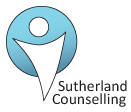Addiction involves continuing a behaviour in spite of harmful consequences to a major life area. The individual who is addicted feels compelled to engage in the behaviour for a short term reward. It is sometimes difficult for people to recognize when their persistent behaviour has become an addiction/ problematic. Common addictions include: alcohol, illegal or prescribed drugs, gambling, food, and sex.
Please see the list below for signs of whether addiction may be a problem for you or someone who you know.
Signs of a possible addiction problem include:
- You sometimes indulge in this behaviour
- More often than you would like
- Using more or going further than you had planned
- You have difficulty pulling yourself away
- Even though you are trying to resist, cut back or quit
- You deny or minimize your use/ involvement
- Secretly (e.g. drinking alone, hiding eating binges, discrete rendezvous)
- Even though others have commented or expressed concern
You continue this behaviour in spite of negative consequences to your:
- Relationship
- Work/ school program (attendance, performance)
- Friendships
- Mood (irritable, depressed)
- Self-esteem (e.g. self-loathing, regretting actions later)
- Reputation
- Physical health (either having symptoms or knowing behaviour increases risk)
- Finances
- Legal status (potential legal charges

There are various treatment options for addictions including individual counselling, group therapy, anonymous support groups, and residential programs (for substance abuse).
Treatment involves recognizing the extent of the addiction and the impact it is having on your life and on the people around you. You can explore what needs you are trying to meet with the addictive behaviour (e.g., liquid courage, comfort food, love & belonging, escape) and search for healthier ways to meet those needs. Relapse prevention strategies are important as the power of addiction can be incredibly strong. It is not as simple as having willpower.
For more information or to book a counselling session, contact Heather Sutherland.
